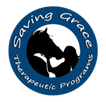 That is a loaded question isn't it? Do you know the answer? Are you responsible for that answer? If you are a business owner, leader, manager, etc. then YES, you are responsible for that answer because YOU are the one allowing the culture. If your team culture is positive, friendly, and has open communication then GREAT! If not, perhaps its time to take a look at what is really going on. One of the biggest problems in the workforce today relates to the culture of the business or team. The culture of your business is the environment in which your team lives... like horses in a pasture. And according to a recent Project Aristotle study by Google, it is PSYCHOLOGICAL SAFETY that is the single most important element of building effective teams. What does that mean? When your team works together do you hear things like: "This is not correct…”, “What do you think?”, “I made a mistake…”, "I need help with this", “I disagree…” If you aren’t hearing those phrases, that might be a problem. Unfortunately, the safety to speak up, share a concern, or voice an idea is not always encouraged in the workplace. Especially when it pertains to issues or challenges. According to Project Aristotle, psychological safety is a huge factor in team effectiveness. "Psychological safety refers to an individual’s perception of the consequences of taking an interpersonal risk or a belief that a team is safe for risk taking in the face of being seen as ignorant, incompetent, negative, or disruptive. In a team with high psychological safety, teammates feel safe to take risks around their team members. They feel confident that no one on the team will embarrass or punish anyone else for admitting a mistake, asking a question, or offering a new idea." (Source: re:Work) As a leader, you must be intentional in creating a culture of open communication and psychological safety for your employees. Model it: Lead by example! Share input, admit mistakes, give opinions, and provide feedback in a constructive way. Solicit it: Ask others to share their feedback, admit mistakes, give opinions, voice concerns, etc. Protect it: Don't let others discourage the input or ostracize the employee providing the feedback or sharing an issue. You must never let the person feel attacked by you or your team. Reinforce it: Reward the team member with positive feedback for the concern, opinion, admission, etc. Consider thanking them in front of the team, allowing them a perk, or even create your own system of reward for speaking up with legitimate concerns/ideas. Team-Building with Horses encourages this type of open communication in a fun and engaging way that can help break down barriers and lighten moods between team mates. Or, it can help you determine those who are not willing to be a team player and may be dragging your team down. You may be able to help them come to a better understanding of this concept, or it may be time for them to move on. Whatever the dynamic, the culture you encourage speaks volumes to how your team will succeed... or fail. Learn more about Team-Building with Horses by visiting our program information HERE.
0 Comments
Leave a Reply. |
AuthorJanna Griggs is the Executive Director of Saving Grace Farm, a non-profit organization in Salisbury, NC. Janna has a BA in Therapeutic Horsemanship and Business Administration from St. Andrew's University in NC. She has been working with horses for almost 30 years and has been a leader in the business world for more than 12 years. She has worked with business coaches and consulting firms throughout her career. She and her team offer The Equine Assisted Method (T.E.A.M.) Workshops for Businesses. Archives
December 2023
Categories |
SEE WHAT'S HAPPENING ! |
We ARE in need of donations for vet expenses, rider sponsorship, and horse feed!Click the Seal for Our GuideStar Profile, including financials, strategies, and progress indicators.
|
©2019 Saving Grace Farm, A 501(c)3 Non-profit organization. All rights reserved.

 RSS Feed
RSS Feed